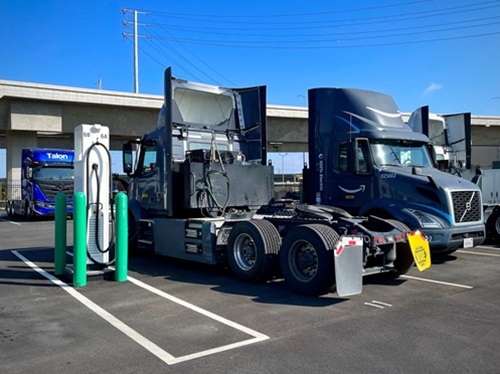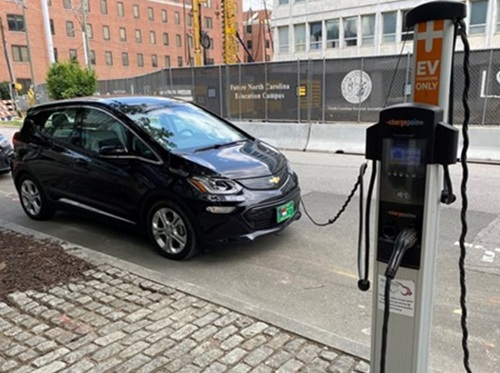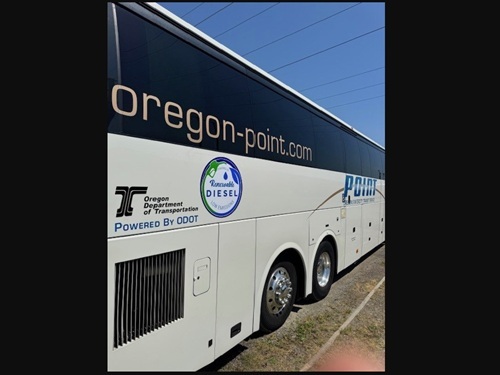The Oregon Department of Transportation said its POINT intercity bus service has joined with two other state transit agencies – Lane Transit District and TriMet – in transitioning from operating buses on petroleum-based diesel to renewable diesel fuel.
[Above photo by Oregon DOT]
Oregon DOT said renewable diesel – also known as R99 – is chemically identical to petroleum diesel, allowing it to be used as a direct replacement without the costly engine modifications and maintenance required with other fuels like biodiesel.
According to the Oregon Department of Environmental Quality, renewable diesel significantly reduces harmful tailpipe emissions – including particulate matter, carbon monoxide, hydrocarbons, and nitrogen oxides – while offering a cleaner burn than petroleum diesel. Produced in the U.S. and elsewhere from a variety of plant, animal fats and waste oils, renewable diesel is cleaner-burning and newly available for commercial use in the Pacific Northwest.
After several months of successful testing, buses serving on POINT’s Cascades Route – operated by agency contractor MTRWestern – have fully transitioned to renewable diesel. MTR noted that it currently gets its R99 fuel from Christensen Fuels based in Richland, WA.
“Renewable diesel gives us the best of both worlds – a significant reduction in emissions with no disruption to service or reliability,” explained Jeremy Butzlaff, president of MTR, in a statement. “As an operator, it’s a seamless solution that lets us support Oregon DOT’s climate goals today while maintaining the high standards riders expect from the POINT service.”
“Seventy percent of all POINT rides are on the route between Portland and Eugene,” added Joel Manning, POINT bus manager for Oregon DOT. “This cost-effective, sustainable switch reduces our carbon footprint significantly.”
Several state departments of transportation are involved in a variety of efforts to deploy “greener” options for everything from buses to trains and ferry vessels.
For example, the Massachusetts Bay Transportation Authority – a division of Massachusetts Department of Transportation – signed off on a $54 million plan to introduce battery-electric multiple unit or BEMU trains to the Fairmount Commuter Rail Line in September 2024. The first of those BEMU trains are scheduled to go into operation in early 2028.
In March 2024, the Texas Department of Transportation put a new “green” maritime ferry into service on the Galveston-to-Port Bolivar route equipped with “cleaner” propulsion technology; marrying together a diesel-electric transmission and lithium-ion battery to reduce diesel engine emissions while improving fuel-efficiency.
Also in March 2024, Governor Wes Moore (D), the Maryland Department of Transportation, and the Maryland Transit Administration (MTA) launched a “Zero-Emission Bus Pilot Program” – part of MTA’s broader effort to covert its transit bus fleet to zero-emission units.
 Electric Vehicles
Electric Vehicles
WSDOT Opening $112M Clean Truck Program in April
February 11, 2026 Electric Vehicles
Electric Vehicles


